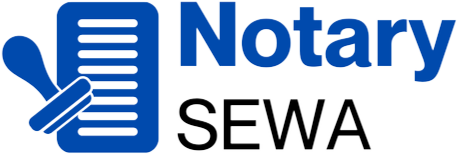
Introduction
Legalization of documents is a crucial process that ensures the validity and authenticity of official documents when used internationally. This process is especially important for sensitive documents such as birth certificates, educational degrees, business contracts, and legal affidavits, which require validation by competent authorities to be legally recognized in foreign jurisdictions. In Nepal, the legalization process involves multiple steps, including notarization, authentication by the Ministry of Foreign Affairs (MOFA), and sometimes an apostille certification for countries under the Hague Convention. This article explains the role of legalization in verifying and securing sensitive documents, its process, and its significance in Nepal.
What is the Legalization of Documents?
Legalization is the official confirmation of the authenticity of a document, ensuring it complies with the legal framework of the country where it will be used. It typically involves:
- Notarization: The document is verified and notarized by a licensed notary public.
- Authentication by MOFA: The Ministry of Foreign Affairs in Nepal certifies the document’s legitimacy.
- Embassy or Consulate Attestation: If required, the concerned foreign embassy authenticates the document for use in another country.
Why is Legalization of Documents Important?
Legalization is essential for preventing document fraud and ensuring seamless international transactions. Key benefits include:
- Global Recognition: Legalized documents are accepted internationally for legal and official purposes.
- Prevention of Fraud: Ensures that documents are genuine and legally valid.
- Ease of Immigration and Business Transactions: Necessary for visa applications, employment, and business dealings abroad.
- Compliance with Foreign Legal Systems: Many countries require legal documents to be certified before recognition.
The Process of Legalizing Sensitive Documents in Nepal
The legalization of documents follows a structured process in Nepal. Below are the key steps involved:
1. Notarization
Notarization is the first step, where a licensed notary public verifies the authenticity of the document. This step is necessary for affidavits, contracts, powers of attorney, and other sensitive legal documents. Learn more about document notarization.
2. Authentication by the Ministry of Foreign Affairs (MOFA)
The notarized document is submitted to the MOFA for verification. MOFA attestation confirms that the document has been notarized by an authorized entity and is valid for further legalization. More on MOFA attestation.
3. Embassy or Consular Attestation (If Required)
If the document is to be used in a country that requires additional verification, it must be attested by the respective embassy or consulate. This is particularly necessary for countries that are not part of the Hague Apostille Convention.
4. Apostille Certification (For Hague Convention Countries)
For documents intended for use in Hague Convention countries, an apostille certificate may be issued instead of embassy attestation. This simplifies the legalization process. More on apostille certification.
Types of Documents That Require Legalization
Several types of sensitive documents must undergo legalization, including:
- Personal Documents: Birth certificates, marriage certificates, police clearance certificates.
- Educational Documents: Degrees, diplomas, transcripts.
- Business and Commercial Documents: Contracts, business licenses, articles of incorporation.
- Legal Documents: Affidavits, court orders, wills, powers of attorney. Find out more about notarized affidavits.
Key Challenges in Legalization Process
While document legalization is necessary, certain challenges may arise:
- Time-Consuming Procedures: The process may take several weeks, depending on the document type and country requirements.
- Multiple Authority Involvement: Different entities handle different parts of the process, leading to potential delays.
- Fraudulent Certifications: Unauthorized agents may issue fake certifications, making it crucial to use reputable services.
How to Expedite the Legalization Process
To speed up the process, consider the following:
- Use Professional Services: Hiring experts like Notary Sewa can help ensure quick and error-free document legalization. Learn about Notary Sewa’s services.
- Prepare Complete Documentation: Ensure all necessary documents are correctly filled and notarized.
- Verify Requirements: Different countries have specific legalization requirements; checking in advance can save time.
Conclusion
Legalization of documents plays a vital role in ensuring the authenticity and acceptance of sensitive documents across international borders. Whether for immigration, business, or personal matters, having properly legalized documents is essential for smooth legal transactions. By following the correct process, verifying requirements, and using professional services, individuals and businesses in Nepal can ensure their documents meet legal standards worldwide.
For expert assistance in document legalization, visit Notary Sewa or explore specific services such as Apostille of Documents and MOFA Attestation.